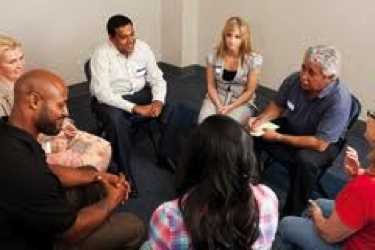
The recovery process is hard enough without having someone to talk to and help you through it. Communication whether receiving or giving advice, is vital to ensure that the right messages are being filtered in and out.
What is Effective Communication?
The main foundation of communication is genuine listening. The effective communication will focus on learning and understanding the other person in the conversation. The key to this being effective is the accuracy of the information. If you don’t listen closely to the information, the wrong messages could come your way, making recovery more difficult.
However, if genuine listening is used when interacting with someone with an addiction the message of the speaker will come through much more clear and understandable. This doesn’t mean anyone will agree as to what is being said; just means the message gets through accurately.
If the information you are listening to seems like it doesn’t make sense, asking follow up questions and or clarifying exactly what is being talked about is always welcome. Also, repeating what one has heard and asking if you’ve heard correctly is extremely beneficial in recovery. This way it shows the speaker, family and anyone else involved the real desire to recover and stay that way. At the same time it will show to the person recovering that there is true caring and concern for them.
 How to Communicate Effectively
How to Communicate Effectively
This process isn’t as easy as it sounds for anyone, however very worth the result. There is usually a lot of pain and hurt and anger issues clouding the true ability to communicate. Over time the trust of concern, safety, thoughts and feelings can now be expressed without the fear of any ill results or fighting, making the treatment process more effective and worth all the while.
There are many cases that aggressive communication becomes essential. An assertive person will speak directly to what he feels, thinks and wants most in life, while at the same time respecting the feelings and rights of others. This focuses on self-respect, while doing everything possible to restoring and possibly enhancing the current relationship.
Communication isn’t always speaking out loud or talking things out. Communication that does and unknowingly gives things away is probably the most important communication tool. A person needs to be just as cautious about what they say as well as how their body reacts. Body language can show negative and or positive messages. If someone is in defense mode, their body language will immediately react badly to anything that is said and get “offensive”.
Types of Communication
There are several types of communication; however with body language it’s always visible and shows more than most people really realize. When your posture is more slouchy, facial expressions don’t seem to make any sense to anyone but yourself; or not even yourself. Hand gestures and how the body expressions all communicate, make a powerful impact to recovery and communicating directly.
When someone feels they are being attacked rather than direct speaking, they may become jumpy, closed off and or in many cases tense up not wanting to respond to any kind of treatment. This will then break down the communication to help this person recover.

In the end, the best thing anyone can do that is ready for recovery is speak up and talk things out in an open and honest forum. This will positively increase the likelihood of a full recovery while at the same time creating a trust with in your family, peer group or anyone else you have a close relationship with.

